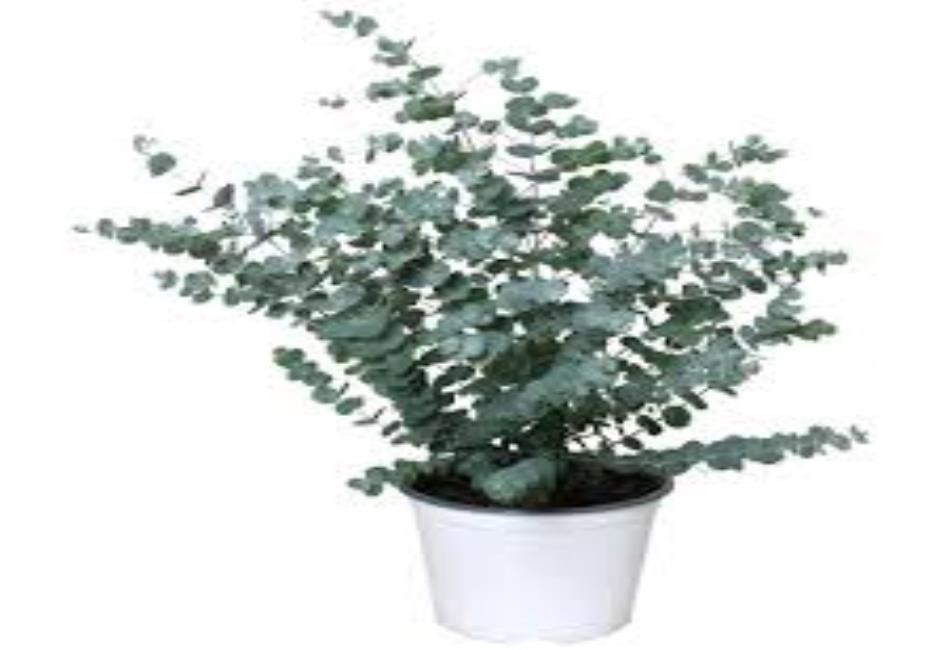Eucalyptus plants, known for their aromatic leaves and distinctive scent, are a group of fast-growing evergreen trees and shrubs native to Australia. They are part of the Myrtaceae family and encompass over 700 species, making them one of the most diverse genera of trees in the world. Beyond their ornamental appeal, eucalyptus plants are celebrated for their medicinal properties, essential oil production, and use in landscaping. This article explores the many aspects of eucalyptus plants, including their characteristics, cultivation, benefits, and uses.
Characteristics of Eucalyptus Plants
Eucalyptus plants are easily recognizable by their smooth, peeling bark, lance-shaped leaves, and clusters of small white, yellow, or red flowers. The leaves are typically covered in oil glands, which give eucalyptus its distinctive, refreshing scent. Young eucalyptus leaves are often round and bluish-green, while mature leaves are long, narrow, and dark green.
The trees can grow rapidly, often reaching heights of 100 feet or more, depending on the species. Some of the tallest eucalyptus trees, like Eucalyptus regnans, can even exceed 300 feet, making them one of the tallest tree species globally. Eucalyptus trees have adapted to thrive in a range of environments, from arid landscapes to wet forests, demonstrating their versatility and resilience.

Growing Eucalyptus: Cultivation and Care
Eucalyptus plants are relatively easy to grow and maintain, making them popular in both home gardens and commercial plantations. Here are some key aspects of cultivating eucalyptus:
- Climate and Soil Requirements: Eucalyptus trees thrive in warm, temperate climates with full sun exposure. They prefer well-drained soil, ranging from sandy to loamy, and are tolerant of drought conditions once established. However, they are less tolerant of frost, so they are best suited for USDA hardiness zones 8-11.
- Planting: When planting eucalyptus, it is essential to choose a location with ample space, as these trees can grow large and have extensive root systems. They are often planted as saplings or seeds. If starting from seeds, it is best to sow them in pots or seed trays in a warm, sheltered spot until they are large enough to transplant.
- Watering: Eucalyptus plants are drought-tolerant once established, but young plants require regular watering to develop strong roots. Overwatering should be avoided, as eucalyptus trees are susceptible to root rot.
- Pruning: Regular pruning helps maintain the shape and size of eucalyptus trees, especially when grown as ornamental plants or in smaller garden spaces. Pruning also encourages new growth and enhances the overall appearance of the plant.
- Pest and Disease Management: Eucalyptus plants are generally hardy and resistant to many pests and diseases. However, they can occasionally be affected by eucalyptus gall wasps, psyllids, and fungal diseases. Regular inspection and appropriate treatments, such as pruning affected areas or using insecticidal soaps, can help manage these issues.
Benefits of Eucalyptus Plants
Eucalyptus plants offer a range of benefits, both ecological and practical. Here are some of the most notable advantages:
- Medicinal Properties: Eucalyptus leaves are rich in essential oils, particularly eucalyptol (also known as cineole), which has anti-inflammatory, antibacterial, and antiviral properties. Eucalyptus oil is widely used in traditional and modern medicine for treating respiratory conditions like colds, coughs, and sinus congestion. It is also a common ingredient in cough drops, inhalers, and chest rubs.
- Aromatherapy: The invigorating scent of eucalyptus is popular in aromatherapy, where it is used to reduce stress, improve mental clarity, and promote relaxation. Eucalyptus oil is commonly diffused in homes, spas, and wellness centers for its refreshing and purifying effects.
- Insect Repellent: Eucalyptus oil is a natural insect repellent, effective against mosquitoes, ticks, and other pests. It is often used in outdoor sprays, candles, and lotions to deter insects, making it a valuable addition to gardens and outdoor living spaces.
- Wood and Timber: Eucalyptus wood is known for its strength and durability, making it a popular choice for construction, furniture, and paper production. Its rapid growth rate also makes it a sustainable source of timber.
- Environmental Impact: Eucalyptus trees play a significant role in carbon sequestration, absorbing carbon dioxide from the atmosphere and contributing to climate change mitigation. They are also used in reforestation projects and for controlling soil erosion due to their extensive root systems.
Uses of Eucalyptus Plants
The versatility of eucalyptus extends to a wide range of uses, from household products to industrial applications:
- Essential Oils and Extracts: Eucalyptus oil is extracted through steam distillation of the leaves and is used in pharmaceuticals, personal care products, and cleaning supplies. Its antimicrobial properties make it an effective natural disinfectant and deodorizer.
- Ornamental Uses: With their attractive foliage and pleasant aroma, eucalyptus plants are often used in landscaping and floral arrangements. They add a unique aesthetic to gardens and are frequently grown as ornamental trees in parks and urban settings.
- Firewood and Fuel: Eucalyptus wood burns hot and produces a pleasant aroma, making it a popular choice for firewood. It is also used in the production of charcoal and as a biofuel in some regions.
- Crafts and DIY Projects: The aromatic leaves and branches of eucalyptus are used in various crafts, including wreaths, garlands, and potpourri. Their longevity and scent make them a favorite for home decor and DIY enthusiasts.
Conclusion
Eucalyptus plants are more than just a beautiful addition to the landscape; they are a versatile and valuable resource with a wide array of benefits and uses. From their medicinal properties and essential oils to their role in the environment and industry, eucalyptus trees have made a significant impact across the globe. Whether grown in home gardens or vast plantations, the eucalyptus continues to be a testament to nature’s adaptability and utility. For those seeking a resilient, aromatic, and beneficial plant, eucalyptus is an excellent choice that offers both aesthetic appeal and practical advantages.
